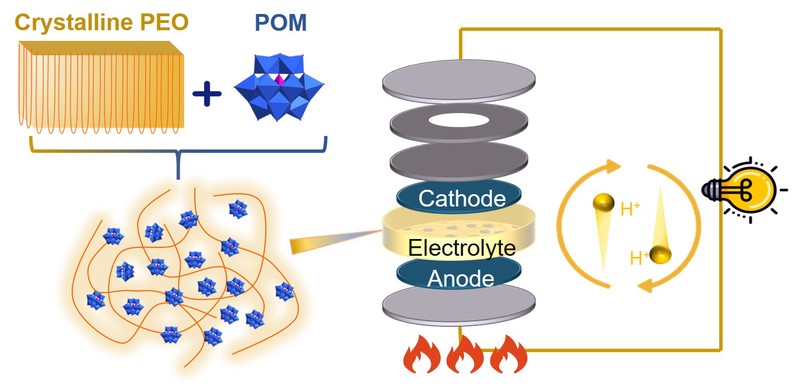Zhao Zheng, Mu Li, Qianjie Zhou, Linkun Cai, Jia-Fu Yin, Youjin Cao, Panchao Yin*
Films that can maintain their flexibilities and conductivities under low humidity and broad temperature range represent the next generation of solid state proton conductors, which would extend the applications of energy storage and conversion devices in extreme environment. Due to their strong interactions with poly(ethylene oxide) (PEO), polyoxometalates (POMs), a group of nano-scale metal oxide clusters, are able to form stable nanocomposites with PEO and fully inhibit its crystallization, facilitating the fast dynamics of PEO chains/segments, as evidenced from dielectric spectroscopy studies. It thus enables the fast proton transportation in PEO matrix and the improvement of the composites’ proton conductivities. With POMs’ loading ratio approaching to 70% wt., the nanocomposite’s proton conductivity reaches as high as 6.86 10-3 S cm-1 at 100 oC in anhydrous environment. The composites’ mechanical properties can be further optimized upon the tuning of PEOs’ molecular weight and finally, flexible, self-supported anhydrous proton conductor can be obtained. The nanocomposite can maintain promising proton conductivities ranging from -20 to 100 oC in anhydrous environment, enabling the fabrication of long-term robust performance of super-capacitor devices and fuel cells under extreme conditions (~100 oC).

文章链接:https://pubs.acs.org/doi/10.1021/acsanm.0c03141

